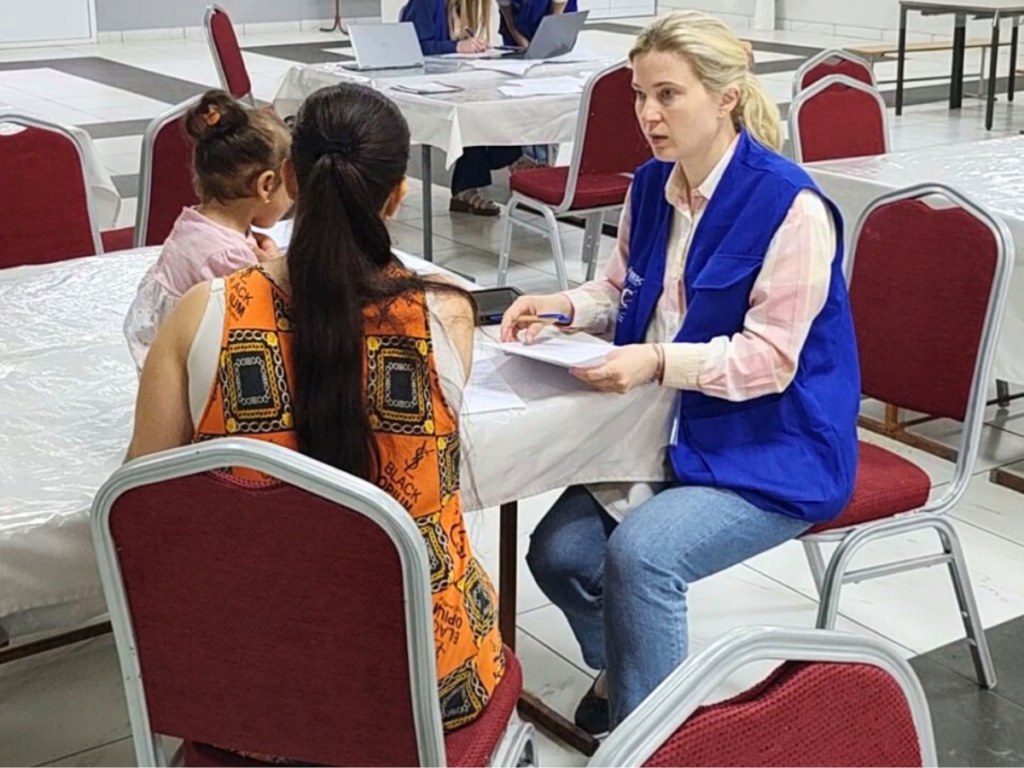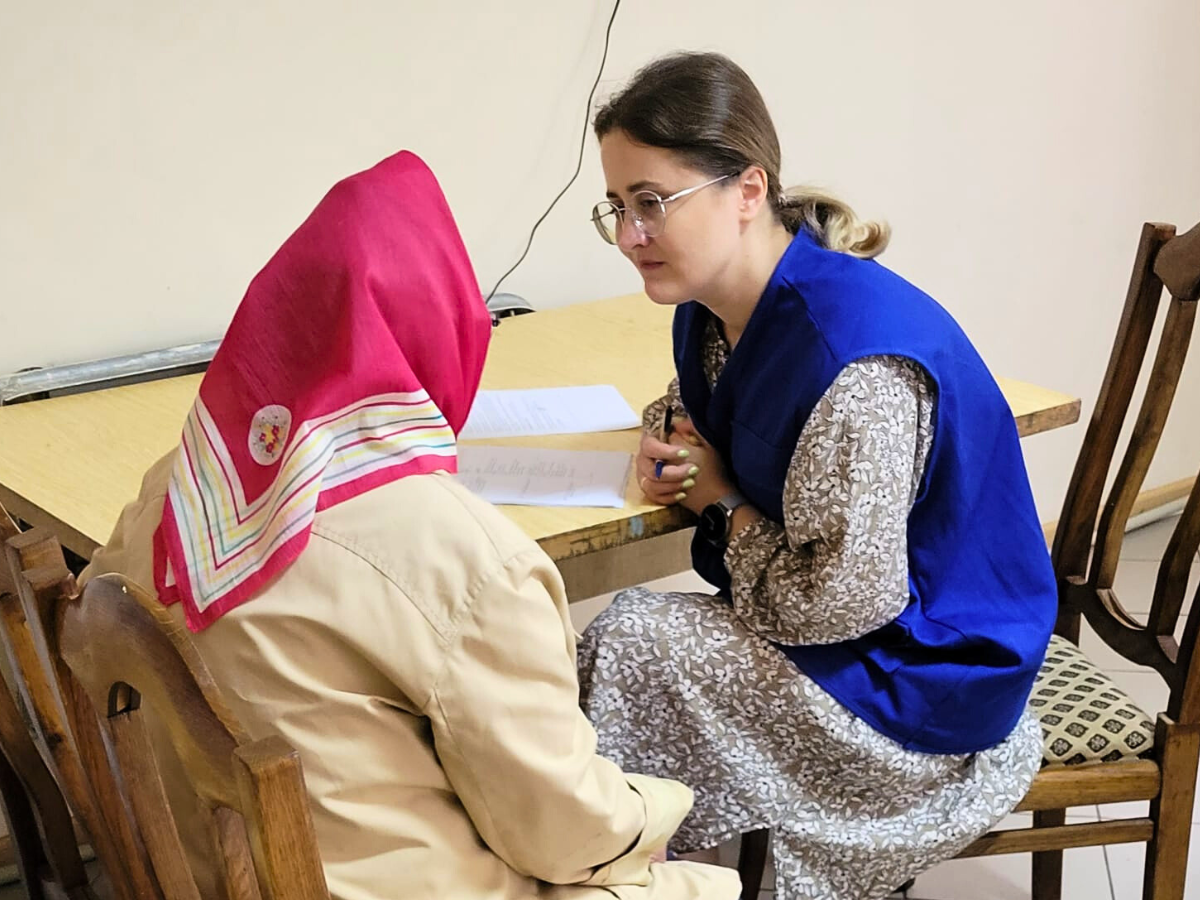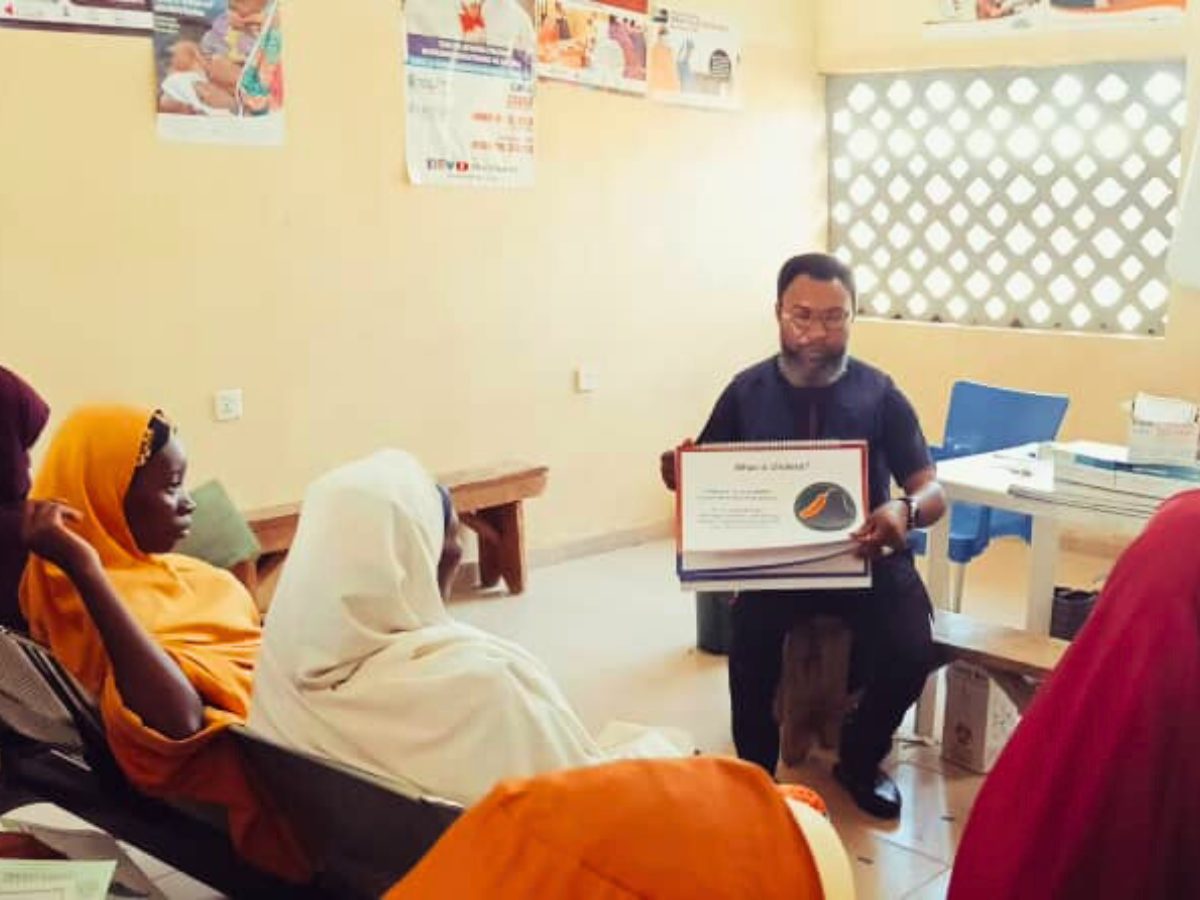The health impacts of war can be both apparent and invisible – from dwindling medical supplies in overwhelmed facilities to the development of antimicrobial resistance among patients to the mental health impact of loss. Understanding the dimensions of these impacts is a critical step in addressing them.
At the onset of the Russian invasion of Ukraine, thousands of people were forced to flee to nearby nations, interrupting health access and services for those who were displaced.
With support and in collaboration with ICAP, the Centers for Disease Control and Prevention (CDC), and the Defense Threat Reduction Agency (DTRA), the Eastern Europe and Southern Caucuses (EESC) Intermediate Field Epidemiology Training Program (FETP) and the Ukraine Advanced FETP conducted a survey among Ukrainian refugees residing in Moldova, assessing barriers to health care services since their displacement, mental health impacts from displacement, and current vaccination and overall health status.
“It was vital that we better understand the experiences of this at-risk group,” said Oksana Dereviankina, MD, MBA, national coordinator of ICAP in Ukraine. “This information will help inform where, among whom, and how urgently health programs should be designed to ensure that all refugees have access to the care they need. That, in turn, is vital for surveilling emerging diseases.”
ICAP is supporting implementation of the Regional Intermediate Field Epidemiology Training Program (FETP-I) for Armenia, Azerbaijan, Georgia, Moldova, and Ukraine as part of the “Enhancing Global Health Security: Strengthening Public Health Surveillance Systems and Preparedness Globally” award from CDC. FETP-I is an on-the-job training program for public health professionals and veterinarians. The 10-month program consists of five 1-2-week didactic workshops in one of the participating countries, accompanied by mentored field work in the residents’ home country. The DTRA supports the implementation of the Advanced FETP in Ukraine.
By June 2023, a team of 18 FETP conducted surveys with 15 health care workers and 346 refugees from Ukraine, including 129 children. Participants resided in 13 Refugee Accommodation Centers (RAC) in six districts of Moldova. Preliminary results demonstrated that among 122 adults who received medical care while in Moldova, 33 (27 percent) reported a change in their typical health care service access. Forty-two percent of those who reported a change noted it was unfavorable change, mostly related to the payment of services or the need to apply for refugee status for better access to health care.
Final results of the survey will be released in the coming months, including mental health impacts among Ukrainian refugees, as well as general health factors, such as vaccination access.

An FETP team member interviews a survey participant who had fled Ukraine. .
Dissemination of the data, which, in its preliminary stage was presented to both the Ukrainian and Moldovan ministries of health, will help inform recommendations to identify disease risks, strengthen surveillance systems, and improve access to health care among refugees. The survey could also serve as an example for similar assessments needed in other countries receiving Ukrainian refugees and for communities of internally displaced populations in Ukraine.
“Results of the assessment will help the Ukrainian and Moldovan governments to strengthen monitoring of disease risks and facilitate provision of health needs among refugee populations,” said Anastasiia Zhabko, an FETP resident from Ukraine.

FETP survey team
In preparation for the Ukrainian refugee survey, four Moldovan and nine Ukrainian Intermediate FETP trainees, and five Ukrainian Advanced FETP trainees, collaborated to evaluate systems for reporting diseases in RACs located in Moldova and for surveying refugees living in RACs.
“This is a remarkable demonstration of cross-border collaboration that will make a substantial impact on disease surveillance and early detection among the Ukrainian refugee population in Moldova,” said Maka Kuchava, coordinator of the FETP program. “This invaluable information collected through the survey has the potential to empower health care authorities to implement targeted interventions, ensuring the health and safety of both refugees and host communities, and serves as an example for other countries in planning health interventions among refugee populations.”
About ICAP
A major global health organization that has been improving public health in countries around the world for two decades, ICAP works to transform the health of populations through innovation, science, and global collaboration. Based at Columbia Mailman School of Public Health, ICAP has projects in more than 40 countries, working side-by-side with ministries of health and local governmental, non-governmental, academic, and community partners to confront some of the world’s greatest health challenges. Through evidence-informed programs, meaningful research, tailored technical assistance, effective training and education programs, and rigorous surveillance to measure and evaluate the impact of public health interventions, ICAP aims to realize a global vision of healthy people, empowered communities, and thriving societies. Online at icap.columbia.edu







